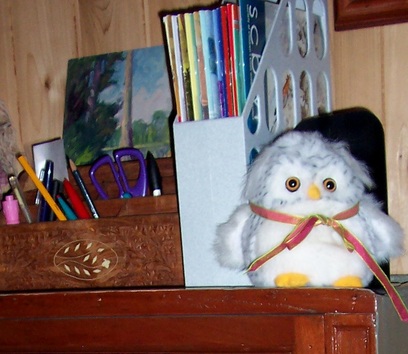 This month Likewise focuses on readers. In particular, Harry Potter fans. The Harry Potter Alliance formed in 2005 with a mission of "changing the world by making activism accessible through the power of story." That gives me goosebumps. I love that good books not only linger in people's minds but they move them to find other people who love books and then use that passion to make the world a better place. Goosebumps. This year the HPA won an unprecedented victory against child slavery when they convinced Warner Brothers to make all HP chocolate sold at WB outlets Fair Trade certified. It was a four-year effort, complete with HPA members sending cease and desist orders and muggle howlers. In 2013, they combined forces with Walk Free, a global anti-slavery movement, and last spring J.K Rowling joined the effort. At long last, Warner Brothers saw the light and conceded. Washington post reporter Alyssa Rosenberg called the victory " . . . a fascinating symbol of what activism might look like when it's animated by fiction rather than political parties . . ." The HP Alliance also helped win a battle for internet neutrality and continues to fight as the giant entities that provide internet service rally to erase that victory. HPA is a perpetual equal rights army with too many projects to mention. You can catch up on their blog, but I can't end this post without mentioning Accio Books, their campaign to gather and give away books. Since 2009, they've provided needy communities with over 200,000 books. This year, besides book giveaways, they're participating in the American Library Association's National Library Legislative Day and Celebrate Teen Literature Day, as well as gathering stories with personal value to HPA members to explore how story shapes membership. There are HPA chapters all over the world at high school, university and community levels. I counted eleven in Florida alone. Click here to find one near you or learn how to start your own. It's amazing what story lovers can do when they unite.
0 Comments
 Do friends ask for your opinion on their artwork or stories? Are you happy to oblige or do you scramble for excuses: I'd love to but my dog ate fifty-seven pages of my homework. Or sorry, we're leaving, right this minute for an emergency vacation. Then you hide out for the next few days hoping they'll ask someone else and forget they asked you. Rather than fumbling for excuses and hiding, it's best to be prepared. If you have the time, honor their request. Some day, you may need them to return the favor. We write stories and make art for ourselves, but most of us mean to share it when it's finished. If it's created as a class assignment, teachers and fellow students offer comments. But artists and storytellers don't stop producing when the last bell rings. The work you create outside of school needs support too. So its' a good idea to learn how to offer helpful, honest feedback without crushing someone's feelings. You may already know of the sandwich formula: Start your critique with a positive: Share what's working for you. What do you like about the piece? Even if it's something you'd normally groan at, take another look. Are there colors in the art that appeal? Is there a character in the story you find intriguing, even if it's just the main character's pet? Then address what isn't working. What would you add to enhance the work? What would you delete? What needs clarifying? Don't give them a list. Consider the person's skill level and offer a couple points you feel will help them grow. Like, "The painting has a lot going on. I really like what's happening here, but maybe you could tone things down a bit there," or "The plot is exciting but there's one or two twists I didn't understand." Finish with encouragement. Thank them for sharing their work. It's takes courage to expose art to others. You pour yourself into the work and risk potentially hurtful criticism when you ask peers to review it. So respect that and encourage creativity, not stifle it. And now a couple more thoughts. If a person comes to you who has never shared their work, offer mostly encouragement. Accepting criticism without the ego being bruised is a learned skill. It takes time. Then again, there will be people who have shared enough work to have learned to accept critical feedback and yet, they want only praise from you. They won't be open to helpful criticism no matter how sensitively you give it. So it helps to ask the presenter what they'd like from you in the way of feedback before you begin. And when you encounter people who aren't interested in your advice, save your breath. Becoming good reviewers is a skill that benefits others, helps you see mistakes in your own work and prepares you for the future no matter what path your art takes. As artists and writers, you'll value the relationships you build with others through critiquing and it will grow your work and your mind in unexpected ways. |
AuthorI write middle grade and young adult books with a magical twist, and I'm represented by the fabulous Leslie Zampetti at Open Book Literary. Writer Websites
Augusta Scattergood Maggie Stiefvater Rob Sanders Fred Koehler JC Kato Sarah Aronson Kelly Barnhill Linda Urban Kate DiCamillo Jacqueline Woodson Helpful Links SCBWI Agent Query Lorin Oberweger - Freelance Editor Search BlogArchives
May 2020
Categories
All
|
 RSS Feed
RSS Feed
